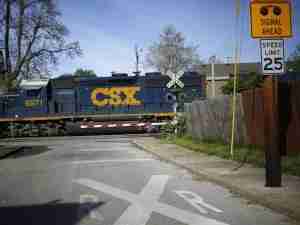Large numbers of London commuters stayed home again Wednesday as train companies ran a reduced timetable between Tuesday’s strike and another that’s set to go ahead Thursday after talks on a deal failed.
Passenger numbers on the UK capital’s subway network or Tube were down 53% through 10 a.m. compared with a week ago, according to Transport for London, suggesting that many people opted to avoid traveling into the city amid warnings of continued disruption.
The National Union of Rail, Maritime and Transport Workers said on Twitter that Thursday’s nationwide strike would go ahead after talks broke down. “Until the government unshackle Network Rail and the train operating companies, it is not going to be possible for a negotiated settlement to be agreed,” it said.
That sets the scene for a repeat of Tuesday’s widespread stoppages, which saw about 40,000 workers walk out and just 20% of the country’s trains in operation. The further strikes set for Thursday and Saturday meant only 60% of trains were scheduled to run Wednesday under a limited timetable.
The London commuter numbers suggest that the RMT’s tactic of seeking to wipe out train travel for a week with three days of staggered strikes is reaping some success, albeit with many people used to home working after lengthy pandemic lockdowns. The union is pressing for higher pay and a guarantee of no compulsory job cuts, leading to clashes with employers and government.
The 730,000 entries and exits on the Tube during what’s normally the morning peak still represent a rebound from 160,000 journeys Tuesday, when 10,000 subway staff were also on strike. That was 95% below the previous week.
River Link
The Tube isn’t part of the national RMT action but relies on people arriving in London via mainline trains for a large part of its customer base.
Other means of travel are getting an uplift from the dispute, with river shuttles run by Uber Boat by Thames Clippers operating a packed service Tuesday to London’s financial districts. The business saw a 35% jump in passenger traffic compared with an average weekday in June, the company said.
The two sides in the dispute, which has pitted the RMT against 13 train operating companies and government-backed track and stations manager Network Rail, appeared far apart during a series of media interviews, clashing angrily over the union’s demands and reasons why transport budgets are being cut.
Prime Minister Boris Johnson told ministers they must be ready to “stay the course” during the strike, which has become emblematic of wider confrontations over the soaring cost of living.
“Our members will continue the campaign and have shown outstanding unity in pursuit of a settlement to this dispute,” RMT General Secretary Mick Lynch said in a statement.
In a rare labor agreement on the railways, the Transport Salaried Staffs’ Association accepted a 7.1% pay deal at Merseyrail, which is operated by Serco Group Plc and Abellio of the Netherlands and provides trains in Liverpool and the surrounding area. That compares with UK inflation of 9.1% in May, a four-decade high.
Manuel Cortes, TSSA general secretary, said the accord represents “a sensible outcome to a reasonable offer which goes a long way towards keeping pace with the escalating cost of living.” Some 94% of members backed the deal.







